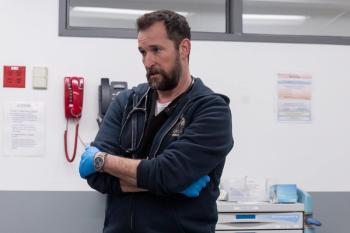
For the third time, Duke Regional Hospital leads list of socially responsible hospitals
The Lown Institute again put the North Carolina hospital at the top spot in its annual ranking of providers. Jason Carter, the hospital’s president, says Duke has a commitment to access.
From its founding 45 years ago, Duke Regional Hospital was intended to provide healthcare and bridge racially divided communities in Durham, North Carolina, Jason Carter said.
Carter, president and chief operating officer of
For the third consecutive year, Duke Regional Hospital earned the top spot on the Lown Institute’s annual rankings of America’s most socially responsible hospitals. During a news conference Tuesday held by the Lown Institute to announce the honors, Carter talked about Duke Regional’s efforts to make a lasting impact.
“We can't miss the fact that we're not even a generation removed from the atrocities of Jim Crow and the impact on healthcare and how that affected our communities and access and trust,” Carter said. “So our commitment, our North Star around that is again meeting our communities, investing in relationships, underpinned by an unwavering commitment to quality and care, as a microcosm of a big body of work that we do to best serve our community.”
The Lown Institute announced that
Duke Regional, a 400-bed hospital, is concentrating on access and looking for ways to help patients before they need acute care in the hospital.
“We're in the business of meeting people where they are,” Carter said. “So for us, access is the best indicator for downstream care. How can we care for our community, not in episodes of care, but creating systems of care? And that will only happen when we create trust with our community and do things, and engage in ways that people know it is safe to come seek their care with us.”
Duke Regional invests millions of dollars into a community health center, and also does outreach to those infected with HIV. He says the initiatives are designed to be part of the community rather than making patients travel to the hospital campus.
“The reality of this, and where we drive this and meet those needs ahead of the significant acute admission, is really a game changer,” Carter said. “And these aren't things that I think are lost on the health care continuum. However, going to that need, regardless of ability to pay or other disparities that we're seeing in communities, I think is making the most meaningful change and difference.”
Carter also pointed to the importance of engaging the workforce to offer the best patient care.
“The people delivering the work every day that are closest to it make the biggest impact on this,” Carter said.
“For me, there's three important questions. What are we working on? Why is it important? And then lastly, how does your job affect it? And are we creating a culture where everyone is fully empowered, whether a neurosurgeon or an EDS technician, to meet people where they are, treat the whole person in whatever capacity they carry forward,” he said.
Duke Regional’s success reflects “an amazing team that's bought and understands not just our culture but our mission to provide hope, health and healing in Durham County and beyond,” Carter said.
Carter talked about the commitment to equity and serving the community, but he also said an important part of that is tied to managing resources effectively.
“We think about driving value, being efficient in what we do, understanding that quality, safety, positive outcomes … happen when we have a system of care, a system of management, a system of quality and alignment of the culture around it,” he said.





























































































